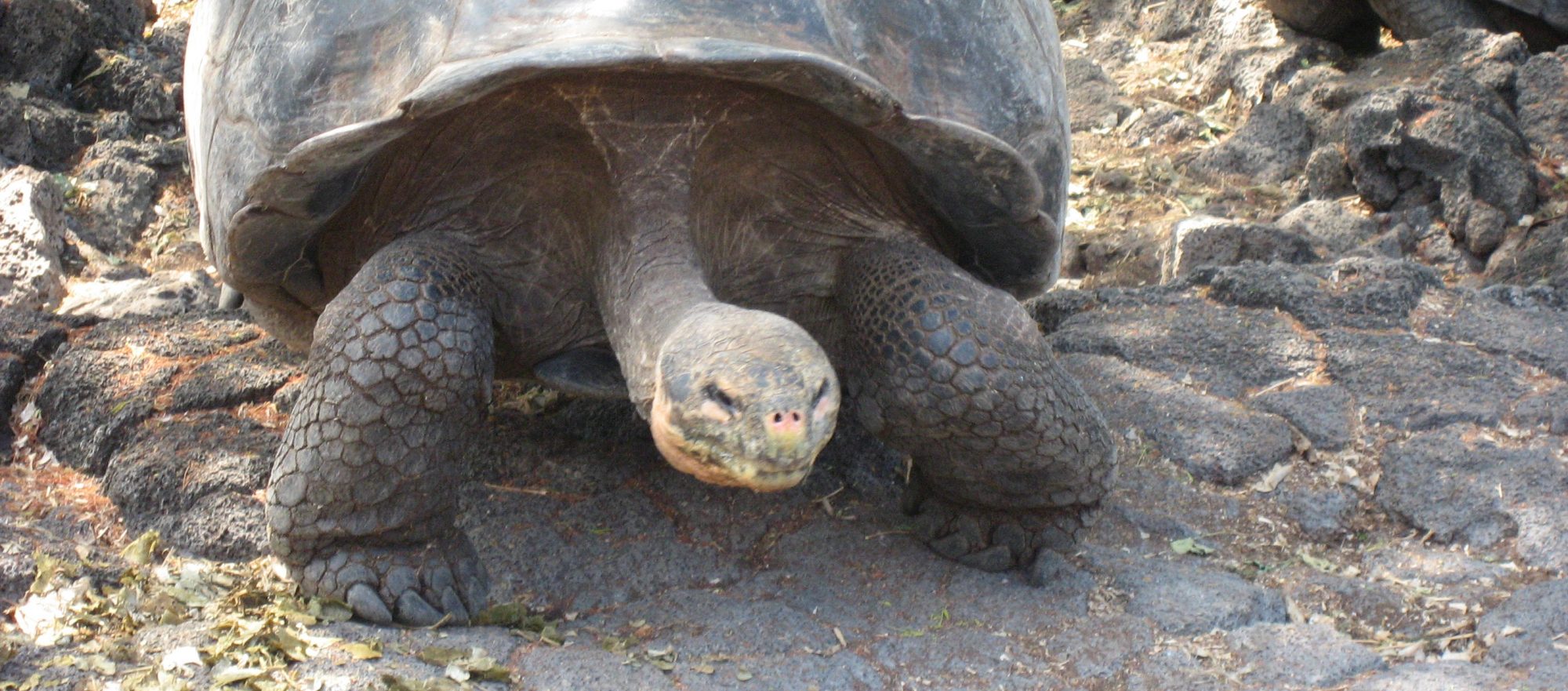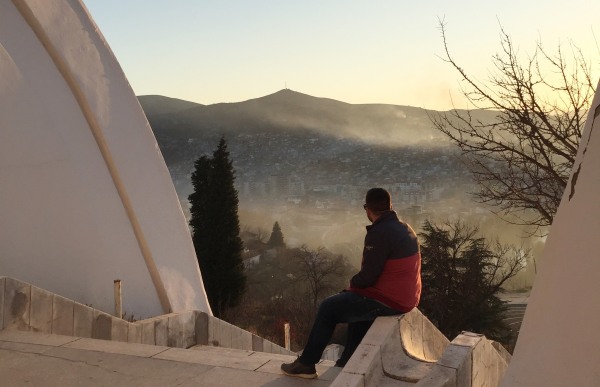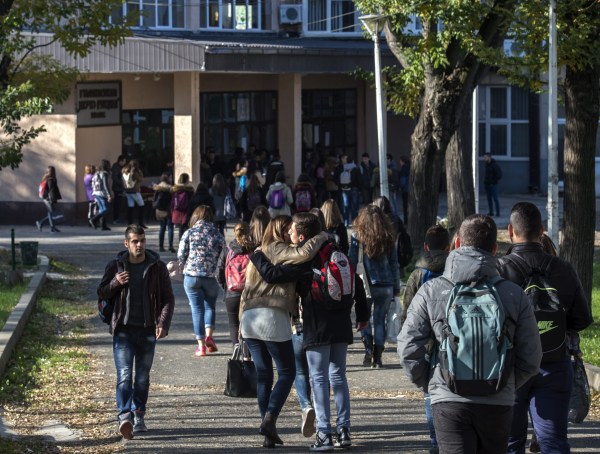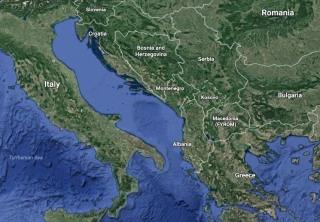Fake News: How a Partying Macedonian Teen Earns Thousands Publishing Lies
by ALEXANDER SMITH and VLADIMIR BANIC
Play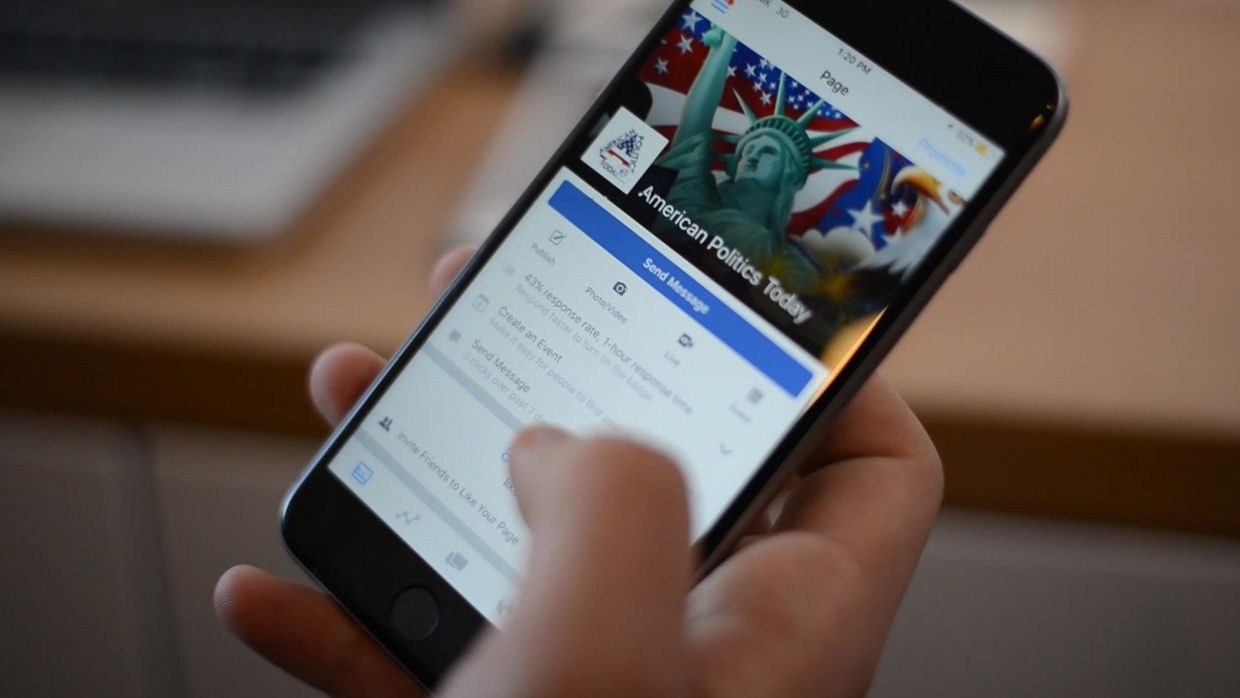
- Google Plus
- Embed
Fake News: How This Teenager in Macedonia Is Striking It Rich3:53
VELES, Macedonia — Dimitri points to a picture on his Instagram showing a bar table decked with expensive champagne and sparklers.
It’s from his 18th birthday just four months ago — a lavish party in his east European hometown that he says wouldn’t have been possible without President-elect Donald Trump.
Dimitri — who asked NBC News not to use his real name — is one of dozens of teenagers in the Macedonian town of Veles who got rich during the U.S. presidential election producing fake news for millions on social media.
The articles, sensationalist and often baseless, were posted to Facebook, drawing in armies of readers and earning fake-news writers money from penny-per-click advertising.
Dimitri says he’s earned at least $60,000 in the past six months — far outstripping his parents’ income and transforming his prospects in a town where the average annual wage is $4,800. He is one of the more successful fake news pushers in the area.
His main source of cash? Supporters of America’s president-elect.
“Nothing can beat Trump’s supporters when it comes to social media engagement,” he says. “So that’s why we stick with Trump.”
Dimitri looks out over the Macedonian town of Veles Alexander Smith / NBC News
Even with the presidential contest over and Google and Facebook’s plans to crack down on fake news makers, money continues to pour in.
Posts about Hillary Clinton are also a hit — but only negative ones.
“I have mostly written about her emails, what is contained in her emails, the Benghazi tragedy, maybe her illness that she had,” Dimitri adds, but now he’s moved on to headlines like: “Trey Gowdy Revealed His EPIC Plan To Imprison Hillary Now That Election’s Over, SHE IS DONE!”
Dimitri’s sole aim is to make his stories go viral.
His most popular headlines during the election included: “JUST IN: Obama Illegally Transferred DOJ Money To Clinton Campaign!” and “BREAKING: Obama Confirms Refusal To Leave White House, He Will Stay In Power!”
Play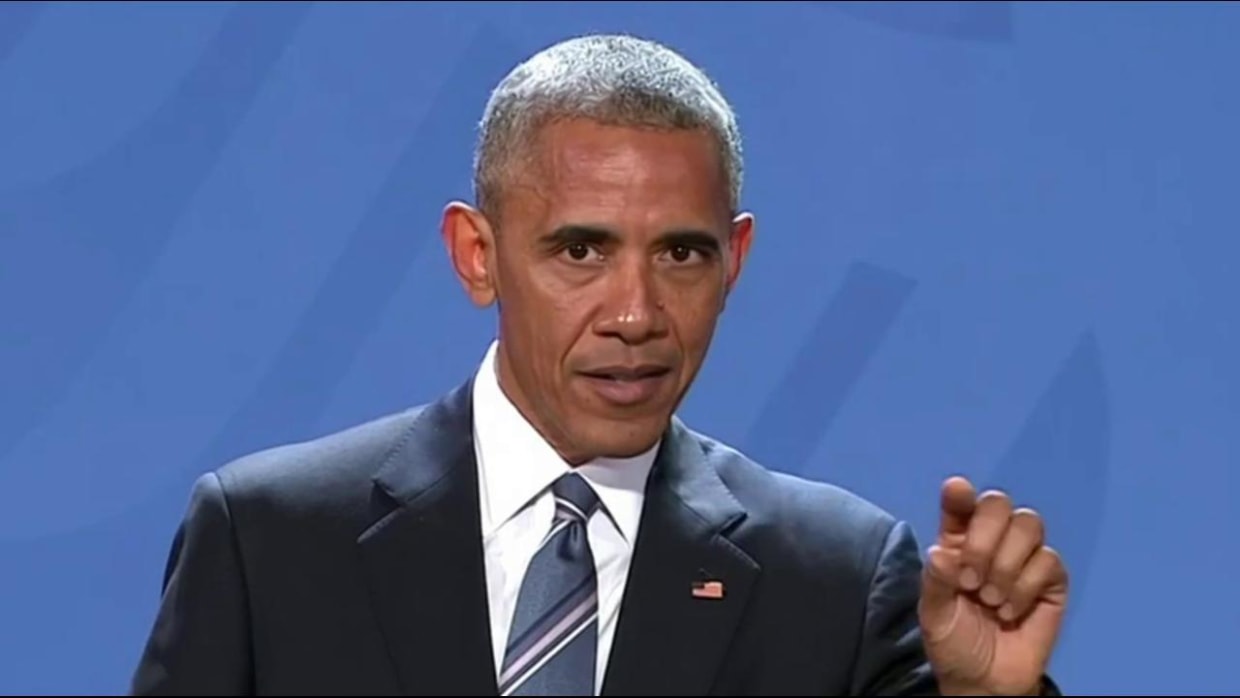
- Google Plus
- Embed
The Fight Against Fake News 7:34
The teenager is unrepentant about any influence his stories may have had on swaying public opinion.
“I didn’t force anyone to give me money,” he says. “People sell cigarettes, they sell alcohol. That’s not illegal, why is my business illegal? If you sell cigarettes, cigarettes kill people. I didn’t kill anyone.”
The same weekend that NBC spent with Dimitri, a gunman opened fire in a Washington, D.C., pizzeria. The shooter told police he was motivated by a fake news story. The pizzeria, Comet Ping Pong, was accused online of hosting a pedophile ring run by Democratic leaders.
Asked about the incident this week, Dimitri claimed he wasn’t familiar with the story nor the people who had spread it online.
A Modern Gold Rush
Students arrive at their high school in Veles in November. GEORGI LICOVSKI / EPA
The small, rust-belt town of Veles has found itself in the international spotlight after investigations by BuzzFeed and the Guardian traced more than 100 fake news domain names here.
The fake news bonanza couldn’t have come against a more jarring backdrop.
Once part of communist Yugoslavia, the Republic of Macedonia has a population of 2.1 million in a landlocked area about the size Vermont. Blanketed by rugged mountains, parts of the country have enjoyed a tourism surge in recent years.
But vacationers won’t find Veles in many travel guides. The town of 50,000 is almost an hour’s drive down a lonely, crumbling highway from the capital, Skopje.
Macedonia is landlocked by Bulgaria, Serbia, Kosovo, Albania and Greece. Google Maps
Visitors are greeted by a distressed mosaic of red-roofed buildings, densely stacked onto a steep mountainside. Industrial smokestacks add to a wintry fog settling over the valley — though even their output has diminished after several recent factory closures.
Almost a quarter of Macedonians are currently unemployed — a rate around five times higher than in the U.S.
But the burdens that weigh on Veles might also explain why it’s become a global hotbed for fake news.
High unemployment and a close-knit community meant that when Dimitri and others started making money, word quickly spread and everyone wanted a piece of the action.
Most teens here speak fluent English, allowing them to quickly navigate through reams of Western news sites and pinpoint potentially viral content.
Dimitri estimates there are now 300 locals dabbling in fake news, with at least 50 making “decent money,” and around a dozen making “a lot.” He says he’s not quite at the top of the pecking order, but not far off.
Play
- Google Plus
- Embed
How to Outsmart Fake News 1:11
But he is no scrappy teenager. Dimitri is bright, with an obvious aptitude for business.
He won’t show NBC News his profile on Google AdSense, an online advertising service that allows websites to make money, to protect five other teenagers who asked him not to reveal aspects of their shared interests. He’s also wary of revealing his full income, worried it will make him a target for thieves, or worse.
However, he does show NBC News a digital receipt from Google showing he earned more than $8,000 from the web giant in September. He says this was just one of several advertising accounts, and claims his most successful streak — in the run-up to the election — saw him rake in $27,000 in just one month.
When asked for comment about the persistence of fake news even after the election, Facebook directed NBC News to a post from CEO Mark Zuckerberg last month in which he laid out the company’s plan to tackle the phenomenon.
In an interview with TODAY on Thursday, Facebook Chief Operating Officer Sheryl Sandberg acknowledged “there’s a lot more to do.”
Google outlined steps last month that it said would restrict advertising on websites that “misrepresent, misstate, or conceal information.” The company did not respond to NBC News’ requests for comment on this apparently still-flourishing industry.
Dimitri says even after the election, while business is less brisk, his fake news is still highly profitable. Like any business, he’s aware of the need to adapt.
“This business updates every hour, every ten minutes, every minute,” he says. “There are always news ideas, new types of generating new visitors and that’s the thing we all want.”
So while newspapers across the globe are losing advertising revenue, Dimitri’s empire of lies is thriving.
He says he now employs three 15-year-olds, paying them the equivalent of $10 per day. As well as buying new laptops and paying cash to boost his posts on social media, he has also invested some of his earnings into real estate — a joint venture with his parents, who are more than happy with his success.
The Anatomy of a Lie
As with many regular journalists, Dimitri starts his day by trawling the web looking for trending topics that he can harness to drive traffic to his websites.
He copies his posts from other fake news websites, including many in the U.S., or takes content from mainstream media organizations before peppering them with invented details. He also posts provocative online polls such as: “Should Trump Deport All Refugees?” and: “Do you consider Donald Trump, the Jesus of America?”
Most of this content is published on websites Dimitri has built to look like NBC News, Fox News, the Huffington Post and others.
